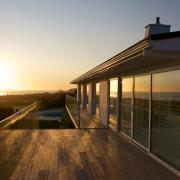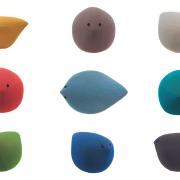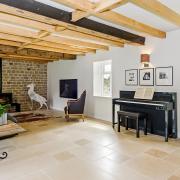Of all the collectables we covet - there is one item that never goes out of style: Carol Burns re-learns how to tell the time
It’s a truth universally acknowledged that we all need to tell the time. Whether we do it digitally or live in an analogue world is a personal choice – but few of us can resist the lure of a beautifully created timepiece. Fortunately, here in Dorset we are well-served with highly trained restorers. Dorset Antique Clocks are specialists in antiquarian horology (the art of making clocks and watches and studying time).
Traditionally the specialist skills to restore, repair and service antique clocks are passed on from master to apprentice. Simon Allen was apprentice under the world-renowned Gerald E Marsh, who helped build some of the best private clock collections in the world - something that Simon is keen to emulate. He was trained by a small team of craftsmen with more than 120 years’ experience between them. Now Simon is the master and in 2015 he set up Dorset Antique Clocks to offer a comprehensive clock restoration service and sales from their main showroom in the picturesque coastal village of Abbotsbury.
So are traditional clockmakers a thing of the past? There was once a time where you could find a clockmaker in every city and town and even in many villages. Today this specialist skill is limited to a few experts and retired enthusiasts tinkering in their garden shed.
Restoration is a very different art to servicing, demanding a far more intimate knowledge of the techniques used in traditional horology – and a greater experience in the aesthetic and mechanical designs used throughout the history of clockmaking.
The ‘golden age’ of clockmaking came with the introduction of the pendulum in the mid-17th century. The following period (until the early 18th century) was the golden age of English clockmaking as Joseph Knibb, Thomas Tompion and George Graham honed their art.
Simon travels all over the country and overseas in search of the ultimate collectable which means his showroom on West Street boasts some prominent clocks. These happily traverse a wide price range from affordable timepieces to the more complicated and rare clocks created over the centuries by some of the stars of clock-making.These timekeeping gems carry a higher price tag.
So what would Simon’s ultimate timepiece be? “When I was working for Gerald at his shop, we had a wonderful 30-day duration, ebony cased, Roman striking longcase by Joseph Knibb circa 1675. It was a stunning piece and such an ingenious invention for this time,” he tells me. Sadly Roman striking, which used Roman numerals instead of ordinary numbers, never caught on, because the majority of people couldn’t get their heads around the idea. “Many think of Thomas Tompion (1639–1713) as being the father of English clockmaking, but I think Joseph Knibb (1640–1711) came ever so close, even though they were very different to each other, yet around at the same time. It’s an era commonly referred to as ‘The Golden Age of Clockmaking’.”
Clocks are a great investment – not only do they hold their value (and may increase over time) – but they also avoid capital gains tax as antique clocks and watches are regarded as machinery with a lifespan of under 50 years.
So is clockmaking a lost artform? “Probably the most famous horologist of our time died in October 2011, his name was George Daniels and he was thought to be the best horologist in the world in his lifetime,” Simon reveals. “He was one of the few modern watchmakers who built complete watches by hand (including the case and dial). As a result the question on many people’s lips was: ‘would his watches be as collectable as clocks by Tompion for instance in the future?’ No-one can know what the future holds, but I would have thought in George Daniels case, the answer would be yes. But if you were to offer me a clock by Tompion or a watch by Daniels, I personally would always go with the Tompion clock, but I also know of people who would take the watch by Daniels.”
READ ON
• Top tips on getting the vintage look right at home - Interior designer, Charlotte Starling shares her tips on getting the vintage look right
• Top tips on getting the balance right for a neutral interior at home - Choosing a neutral palette can be simple and beautiful. Charlotte Starling shows you how to get the balance right



























